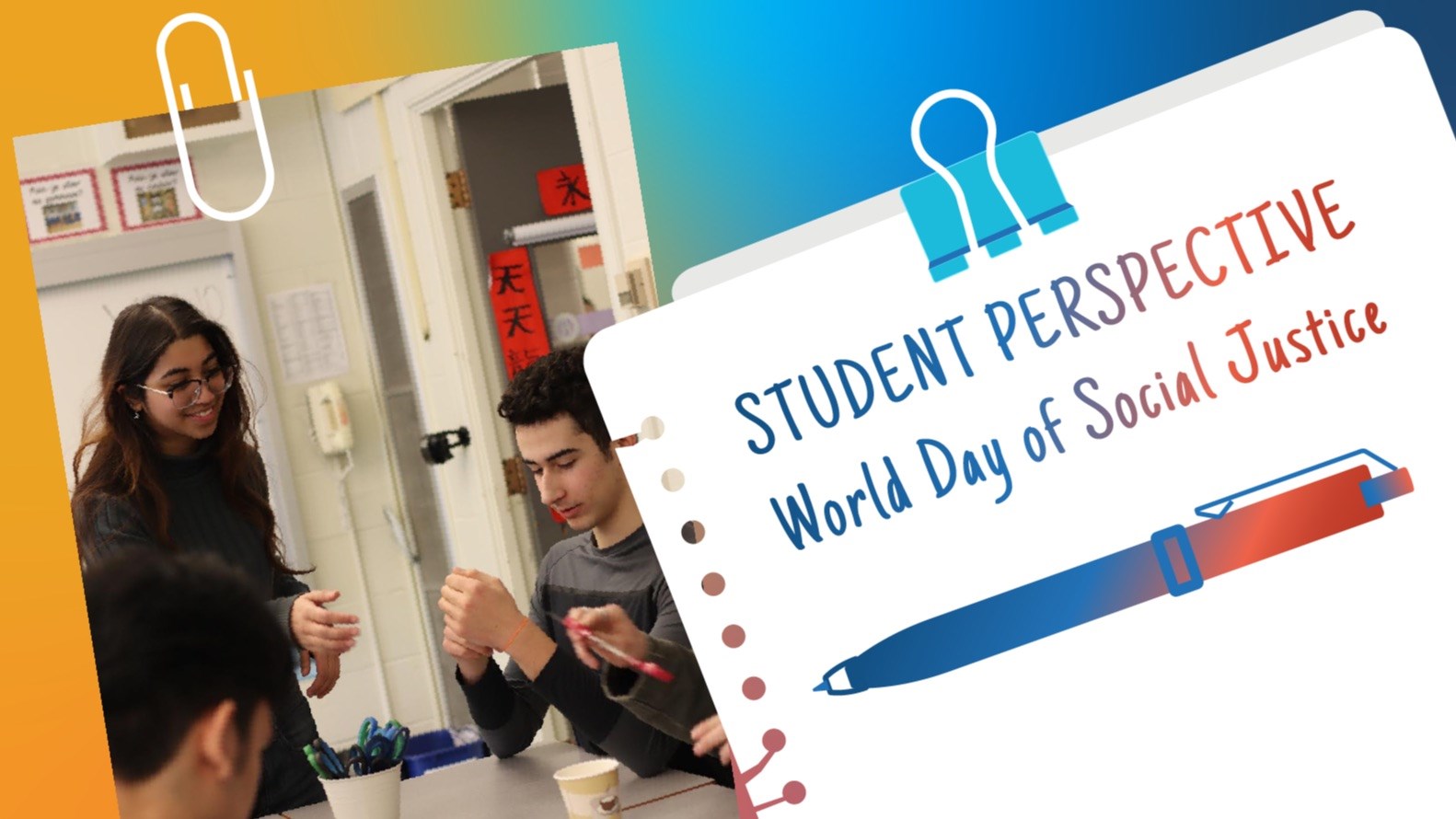Student Perspective: World Day of Social Justice

Overlapping Realities
Shahreen Chowdhury, Grade 12, Eric Hamber Secondary School
My journey into social justice began in Grade 10 and has since inspired me to pursue a path in Humanities. I'm now planning to double major in Political Science and Law, Ethics, and Society. My passion for social justice has led me to take numerous courses during high school, including Genocide Studies, Gender Studies, Law, 20th-Century World History, and B.C. First Peoples. Each of these has provided valuable insight into how to analyze and empathize with world issues and the experiences of different groups.
Growing up as a South Asian woman in Vancouver, I've often felt a sense of underrepresentation both in the media and within my school community. Hollywood's portrayal of South Asians tends to perpetuate harmful stereotypes, depicting us as dirty, less than, and undesirable. This lack of accurate representation extends beyond films, seeping into social media platforms where our cultural practices are often ridiculed until they are appropriated. For instance, hair oiling is a cultural practice that South Asians have historically been, and continue to be, ridiculed for. We are called greasy or unhygienic, however, now that other races have seen the benefits of this practice it has become a part of the trendy, “clean girl aesthetic.”
Within my school, I noticed a gap in cultural awareness and representation. In my opinion, lack of education is the root cause of harmful stereotypes. For this reason, active advocacy and change-making are my priorities. Without connection and relationship building, assumptions and judgments are human nature. This encouraged me to found the Culture Club, allowing me to learn the importance of persistence to effectively create positive change. By continuously promoting the beauty of different cultures, I can integrate more diversity and inclusivity into my school community.
Additionally, I have played a role in the development of the Student Council Diversity, Equity & Inclusion (D.E.I) position. This role aims to address the lack of cultural awareness and representation within our school community. Through initiatives like spotlighting Indigenous Peoples and Black voices, the Council works to schedule events to celebrate diverse cultures, and we've made strides toward creating a more inclusive environment.
I've also been self-motivated to learn about and advocate for social justice issues, particularly those affecting Indigenous communities. Recently, I learned about the devastating wildfires in Yellowknife, Northwest Territories, and their disproportionate impact on Indigenous populations. The evacuation process highlighted systemic issues, including the neglect of vulnerable populations and the lack of resources provided by the government. These wildfires have not only displaced thousands of residents but also posed a threat to the Boreal Forest, a crucial ecosystem that plays a vital role in global climate regulation.
By continuing to learn about the diverse experiences of often marginalized groups, we can unite and make real progress in addressing the various injustices we face. Social justice is an ongoing journey, and that's why it's so crucial to continue pushing for equity until we achieve true equality. Taking classes like those mentioned above is a great way to start learning, as it provides a safe environment where you're guided by good teachers, eliminating the fear of not knowing enough or saying the wrong thing. It's through education, advocacy, and collaboration that we can work toward building a more just and inclusive world for everyone.
